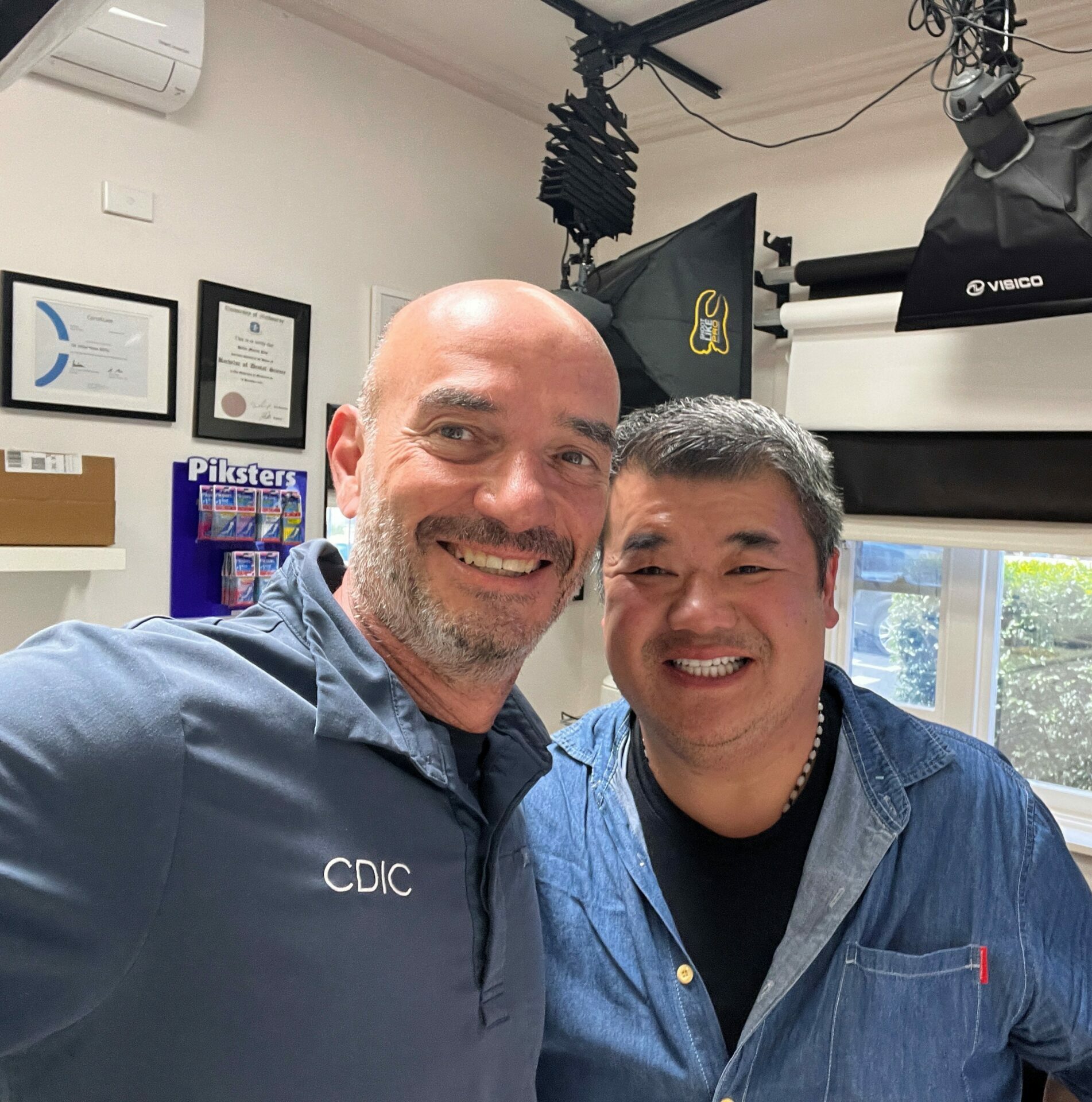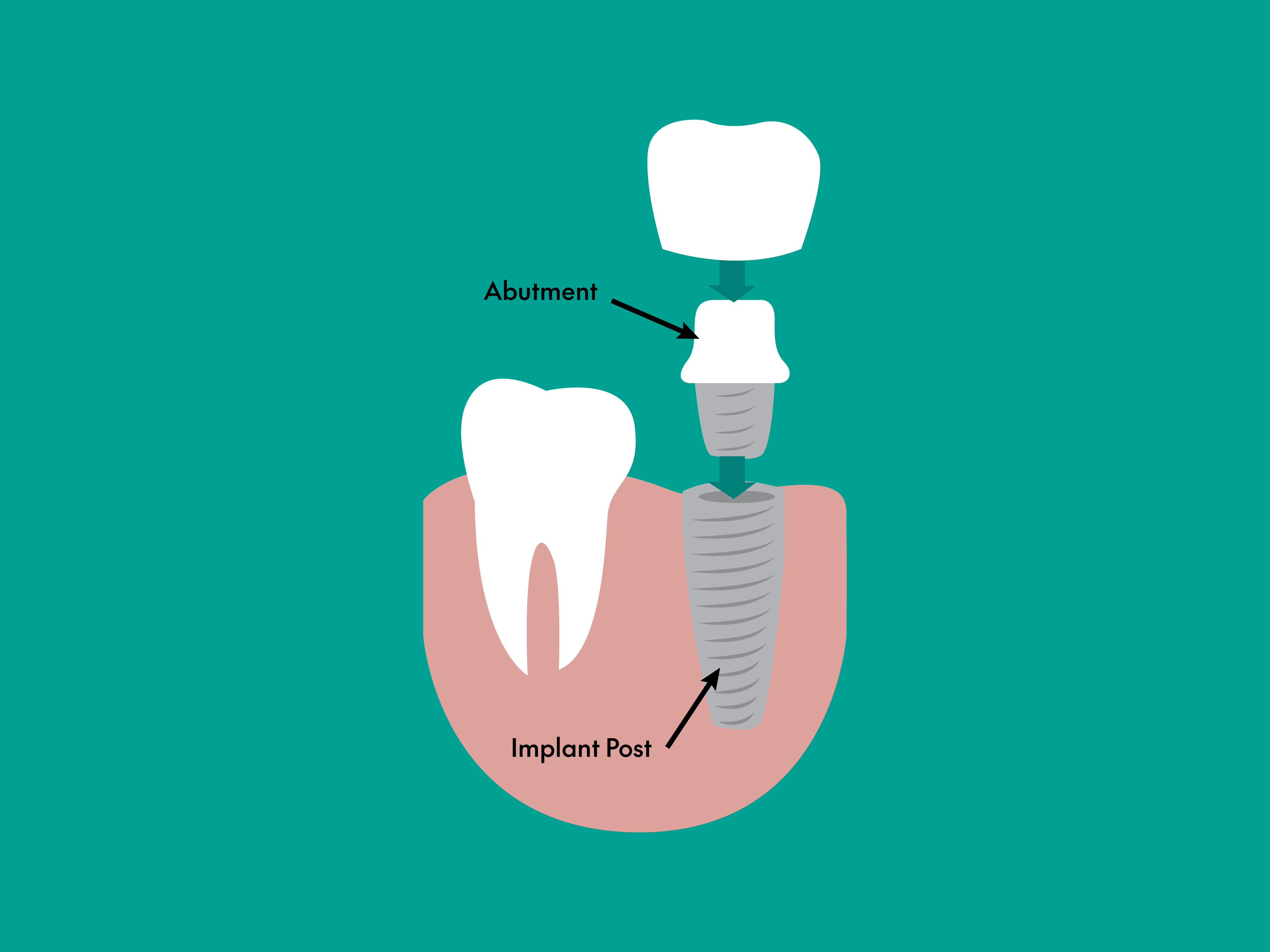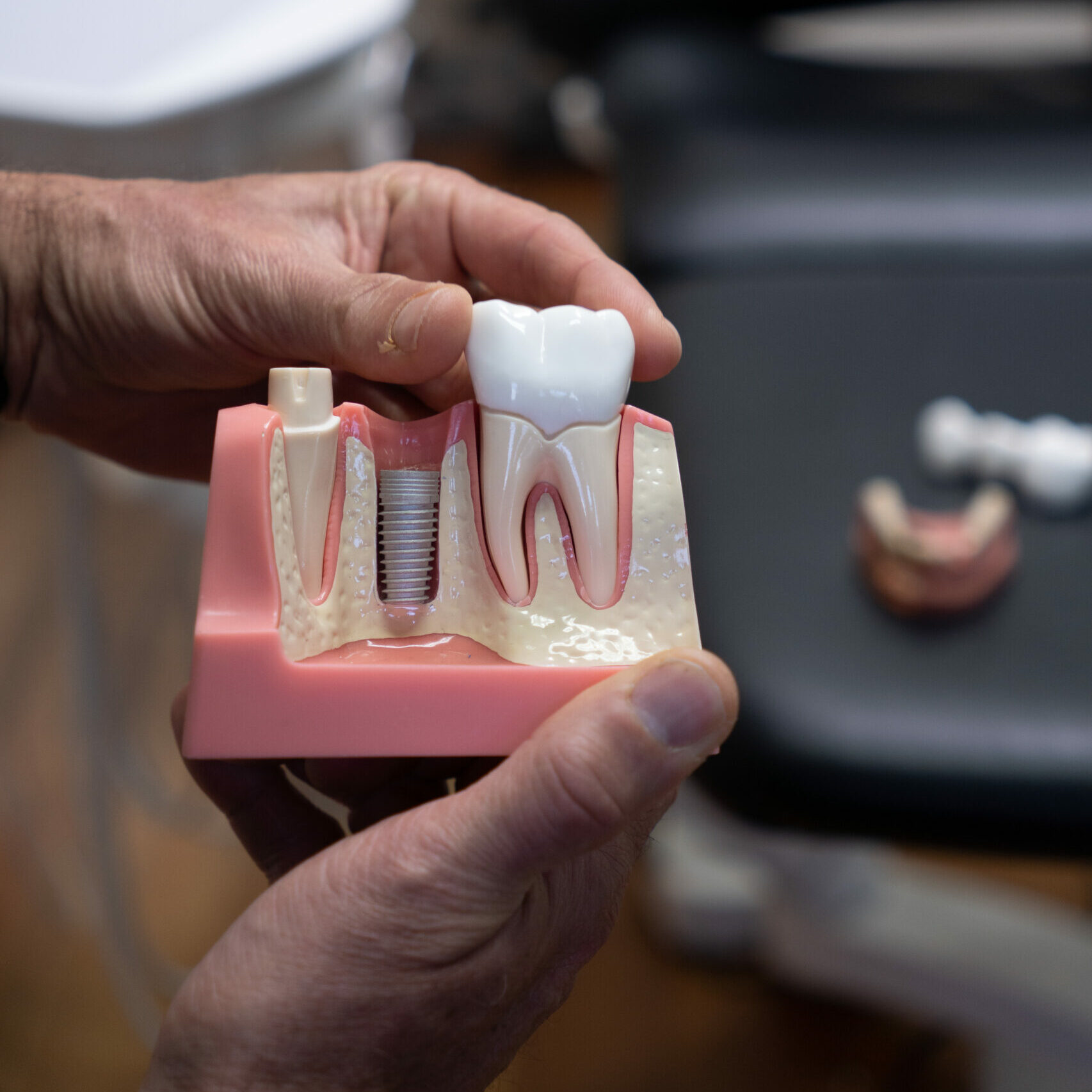Replacing single or multiple missing teeth safely and predictably. Our team provides quality, pain-free solutions to your missing teeth, with patient care you can rely on.

Dental implants are small titanium screws that are gently placed into your jaw bone, acting as a foundation onto which a prosthetic tooth can be attached. A full implant restoration comprises three distinct parts:
All teeth replacements are designed to match the functionality of a natural tooth and are custom-made to blend with the appearance of your other teeth seamlessly. A single tooth replacement can be completed with one implant and prosthesis, while multiple teeth can be effectively replaced by attaching a dental bridge or adjoining prosthetic teeth to two or more implants.

We have been delivering exceptional dental implants in Melbourne for decades. Get in touch to book your tooth replacement at CDIC.

The success rate of dental implant procedures is extremely high, but patients must have enough bone in their jaw to support an implant being placed. We will conduct a thorough review before beginning treatment to ensure you are an appropriate candidate. We recommend that implants only be placed in patients who are at least 18 years old, to ensure their jaws have fully developed.
Patients with gum disease or tooth decay are not ideal candidates for an implant. These oral disease need to be treated prior to a dental implant being placed to ensure the restoration heals successfully and lasts.
We begin by assessing your oral health and bone volume, and examining with 3D imaging whether you have enough bone in your jaw to support an implant in the best possible position.
Implant surgery is typically completed under local anaesthetic, with the screw-like titanium post inserted into the jaw bone.
Once placed, the area is left to heal for 3 to 6 months, during which time natural bone integrates with the implant surface to secure it, in a process called osseointegration.
Once fully healed, a custom-made dental crown or bridge is designed, fabricated and affixed to the implant, to finalise the replacement tooth.
Having gaps in your teeth can make your day-to-day life unnecessarily difficult. Having delivered thousands of safe and effective implant procedures, our friendly team is passionate about creating lifelong smiles for our patients. Book your initial consultation today and take the first step to replacing your damaged teeth.

Few dentists in Australia have been regularly placing dental implants as long as Dr Hillel New. As CDIC’s leading Dental Surgeon, he has been providing exceptional dental care for over 34 years, building a reputation for providing quality, pain-free treatments in cosmetic and implant dentistry. Dr New’s expertise sees him regularly called on to identify and troubleshoot problems many people experience with their dental implants.
His treatment philosophy centres around a commitment to evidence-based dentistry, and he believes in effective communication as the key to treatment success and long-term relationships with his patients.
With decades of experience in dental implant treatments, Dr New has seen it all, and is passionate about coming up with the perfect solution for every patient. Here are just a few of the happy smiles he’s helped create.
Check out our range of teeth replacement options.
Your dental implants cost will vary depending on a variety of factors, including the number of implants, the complexity of placement and surgery, existing dental and oral health, and whether any bone grafting is required. Our titanium implants start at $2,000, with porcelain crowns and implant abutments starting at $2,500. We provide all patients with a comprehensive breakdown of their costs before beginning any treatment.
Once an implant has fused to the bone in your jaw, it should last for the rest of your life with the right care, including adequate home hygiene and regular professional checking and cleaning. However, the prosthesis that is attached to an implant will typically require a replacement every 5 to 15 years due to natural wear and tear.
Bone grafting may be necessary in cases where a patient does not have enough natural bone to support an implant, due to infection, gum disease or ageing. We will conduct an in-depth examination of your teeth and oral health to determine whether you require any bone grafting.
The length of the entire dental implant process can vary between patients depending on their unique circumstances. If tooth extraction is required, the extraction site requires a few weeks of healing before an implant can be placed. Similarly, if bone grafting is required, the healing period prior to implant placement can be between 3 and 6 months to allow the graft to fully integrate with natural bone.
After the implant has been placed, it typically requires 3 to 6 months to fully integrate with your natural bone in a process called osseointegration, before an abutment and crown can be placed.
Unfortunately, Medicare typically does not subsidise costs for implant treatment. However, in some cases where implants are considered clinically necessary, you may be eligible for a contribution to the cost of your treatment. Our team can help advise you on what you may be eligible for.
Some private health insurance policies will cover a portion of your dental implant cost, though this will depend on your level of cover, the amount you have already claimed, and the specific treatments your policy includes in its coverage. Some plans don’t cover things like implants or cosmetic procedures. We suggest contacting your health fund to find out exactly what you are covered for with your policy.
It’s essential to follow proper aftercare to ensure your dental implant heals successfully and will last. After having one or more implants placed, patients will need to follow a soft diet for the first few days, before slowly introducing harder foods that require little chewing. Patients should avoid tough, sticky or crunchy foods for between three and six months to ensure the dental implants stabilise properly. Your dentist will help you understand what soft foods to eat after dental implants are placed, and what you can and cannot eat through each stage of post-treatment care to avoid implant failure.
Other factors that may affect the longevity of your dental implants include teeth grinding, which can wear down your dental crowns faster and cause bone loss about the implant, and heavy smoking, which not only deteriorates your crowns but leads to poor gum and bone health. This will ruin the stable connection between your implant and bone, while also having a host of negative ramifications for your remaining natural teeth.
As with any surgical procedure, dental implant treatment does carry some minor risks, including injury to surrounding structures. However, these issues and permanent complications are rare. Your dentist will take you through all of the risks before beginning any surgery and help you to understand your decision.
Mon: 8.30 – 17.30
Tue: 8.30 – 17.30
Wed: 8.30 – 17.30
Thu: 8.30 – 17:30
Fri: 8.30 – 17:00
Sat: closed
Sun: closed
© 2025 CDIC | Disclaimer | CCTV Policy| Privacy Policy
Website developed by Media Exchange